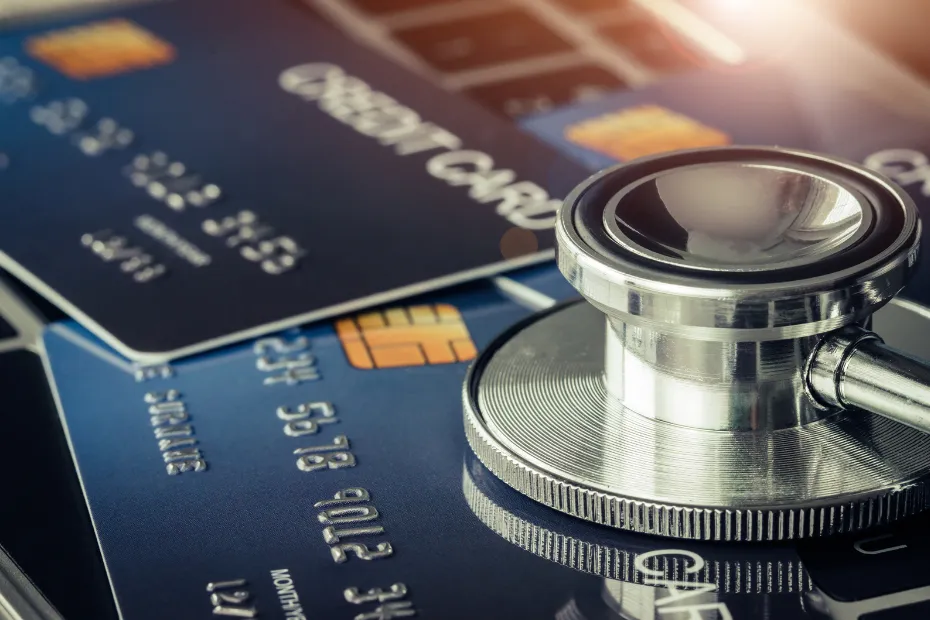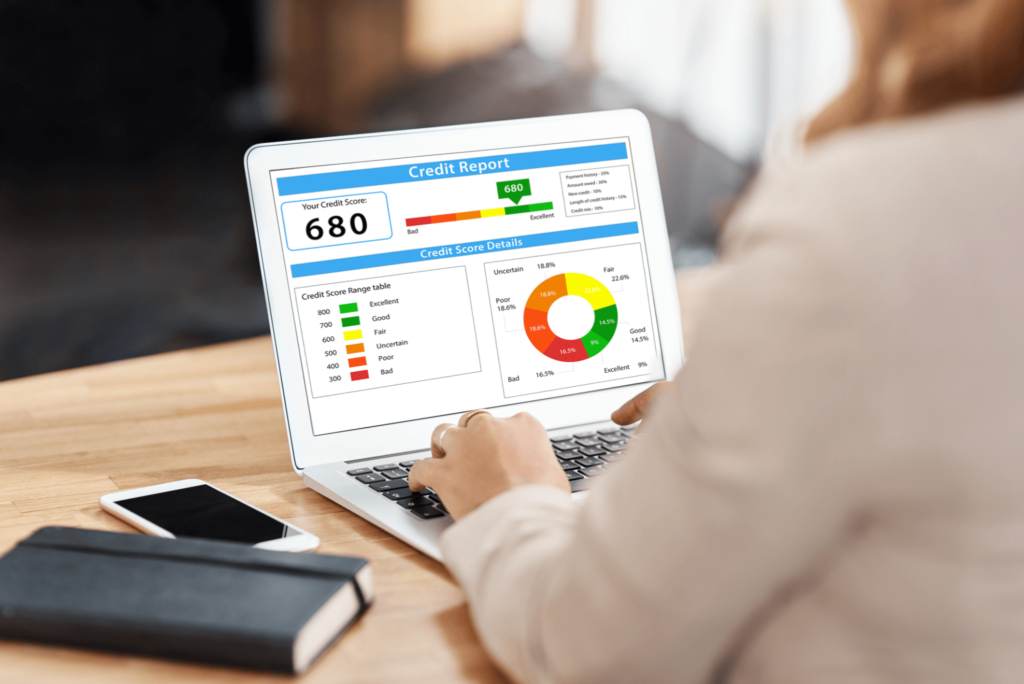Your Credit Journey: From Basics To Financial Power
Understanding credit is essential in today’s financial world. Whether you’re applying for a loan, renting a home, or even seeking employment, your credit profile speaks volumes. But building strong credit doesn’t happen overnight. It’s a journey—one that starts with understanding the basics and leads to long-term financial power. This article takes you through each stage of your credit journey, from foundational concepts to strategies that empower you to use credit to your advantage.
What Is Credit?

Understanding the Concept of Credit
Credit is the ability to borrow money or access goods and services with the understanding that you’ll pay later. Lenders, such as banks and credit card companies, extend credit based on the trust that you’ll repay what you owe on time.
Types of Credit
- Revolving Credit: Credit cards fall under this category. You borrow, repay, and borrow again.
- Installment Credit: Includes mortgages, car loans, and personal loans—borrowed once and repaid over time with fixed payments.
- Open Credit: Usually paid in full every month, such as utility or cell phone bills.
Why Credit Matters
Impact on Major Life Decisions
Good credit affects your ability to:
- Secure low-interest loans
- Get approved for rental housing
- Qualify for better insurance premiums
- Obtain certain jobs
Credit Score: Your Financial GPA
Your credit score is a three-digit number (300–850) that represents your creditworthiness. The higher the score, the more creditworthy you are.
Building Credit from Scratch
Starting with No Credit History
If you’re new to credit, consider these methods to begin building:
- Apply for a Secured Credit Card: Backed by a cash deposit and ideal for first-timers.
- Become an Authorized User: Piggyback on a trusted family member’s good credit.
- Use Credit Builder Loans: Offered by credit unions, these help establish a payment record.
Best Practices to Build Credit Responsibly
- Always pay your bills on time.
- Keep credit utilization low (below 30% of your limit).
- Avoid opening multiple accounts too quickly.
- Check your credit report regularly for errors.
Credit Reports and Credit Scores
What’s in a Credit Report?
Your credit report is a detailed record of your credit activity and payment history. It includes:
- Personal information
- Credit accounts
- Credit inquiries
- Public records (e.g., bankruptcies)
Major Credit Bureaus
- Experian
- Equifax
- TransUnion
Each bureau may report slightly different data, so it’s important to check all three.
How Credit Scores Are Calculated
- Payment History (35%): Whether you pay on time
- Amounts Owed (30%): Your credit utilization ratio
- Length of Credit History (15%): How long accounts have been open
- Credit Mix (10%): Variety of credit types
- New Credit (10%): Frequency of credit inquiries and new accounts
Managing and Improving Credit

Strategies for Maintaining Good Credit
- Set up auto-pay to avoid missed payments.
- Use less than 30% of your available credit.
- Maintain older accounts for a longer credit history.
- Limit hard inquiries by spacing out credit applications.
Fixing Poor Credit
- Review your credit reports and dispute inaccuracies.
- Create a debt payoff plan, such as the snowball or avalanche method.
- Consider credit counseling if you’re overwhelmed.
Smart Credit Usage for Financial Growth
Leveraging Credit Wisely
Once you’ve built solid credit, you can use it strategically:
- Qualify for low-interest mortgages or car loans
- Earn rewards from credit card points or cash back
- Negotiate better financial terms with lenders
- Start a business by securing business credit or loans
Using Credit to Increase Net Worth
Responsible credit use allows for smart investing in:
- Real estate
- Education
- Business ventures
Credit isn’t just a borrowing tool—it’s a financial asset when used wisely.
Common Credit Mistakes to Avoid
Pitfalls That Hurt Your Credit
- Missing payments
- Maxing out credit cards
- Frequently opening and closing accounts
- Ignoring your credit report
Identity Theft and Credit Protection
- Use strong passwords and two-factor authentication
- Regularly monitor your credit report
- Freeze your credit if suspicious activity occurs
Credit Milestones Over a Lifetime

In Your 20s: Establish and Learn
- Start with a secured card or student credit card
- Learn budgeting and responsible repayment habits
In Your 30s: Grow and Optimize
- Build a diverse credit mix
- Secure major loans like a mortgage
In Your 40s and 50s: Strategize and Preserve
- Pay down major debts
- Monitor credit as part of retirement planning
In Retirement: Maintain and Protect
- Keep active accounts in good standing
- Monitor for fraud and identity theft
Tools and Resources to Manage Credit
Helpful Apps and Services
- Credit Karma: Free credit monitoring
- Mint: Budgeting and expense tracking
- Experian Boost: Adds utility and streaming payments to your report
- MyFICO: For official FICO score tracking
Also Read : How Do Credit Laws Protect Consumers?
Conclusion
Your credit journey is more than just numbers on a report—it’s a reflection of your financial habits, planning, and foresight. From learning the basics of credit to using it as a powerful tool for achieving financial goals, your actions today shape your financial future. By understanding how credit works and implementing responsible credit behavior, you position yourself for long-term financial success.
Credit is not a burden—it’s an opportunity. And with knowledge, discipline, and proactive management, you can transform your credit journey into a pathway to financial power.
Frequently Asked Questions (FAQs)
What is a good credit score?
A good credit score typically ranges from 670 to 739. Scores above 740 are considered very good to excellent.
How long does it take to build credit from scratch?
It can take as little as three to six months of consistent, responsible credit activity to build a credit score.
How often should I check my credit report?
You should check your credit report at least once a year. You’re entitled to one free report from each major bureau annually via AnnualCreditReport.com.
Will checking my own credit hurt my score?
No. Soft inquiries like checking your own credit do not impact your credit score.
How can I improve my credit quickly?
- Pay down existing debt
- Make all payments on time
- Increase your credit limit
- Correct any errors on your credit report
What is credit utilization and why does it matter?
Credit utilization is the ratio of your credit card balances to your credit limits. Keeping it below 30% helps maintain or improve your credit score.
What happens if I miss a credit card payment?
Missing a payment can negatively affect your credit score, and if it’s more than 30 days late, it may be reported to credit bureaus.
Can I remove negative items from my credit report?
Yes, if they’re inaccurate. You can dispute them with the credit bureau. Accurate negative items must typically remain for seven years.
How long do late payments stay on my credit report?
Late payments generally stay on your report for seven years from the original delinquency date.
What’s the difference between FICO and VantageScore?
Both are credit scoring models but use slightly different criteria. Lenders may prefer one over the other.
Is closing a credit card bad for my credit?
Closing an account can reduce your available credit and impact your credit utilization and length of credit history.
How can I protect myself from identity theft?
Use credit monitoring, create strong passwords, enable alerts, and review your credit reports frequently.
What is a secured credit card?
A secured card requires a cash deposit and is often used to build or rebuild credit.
How does bankruptcy affect my credit?
Bankruptcy can significantly lower your credit score and remain on your report for up to 10 years.
Can I get a loan with bad credit?
Yes, but interest rates will be higher. Consider credit unions, secured loans, or a co-signer.
